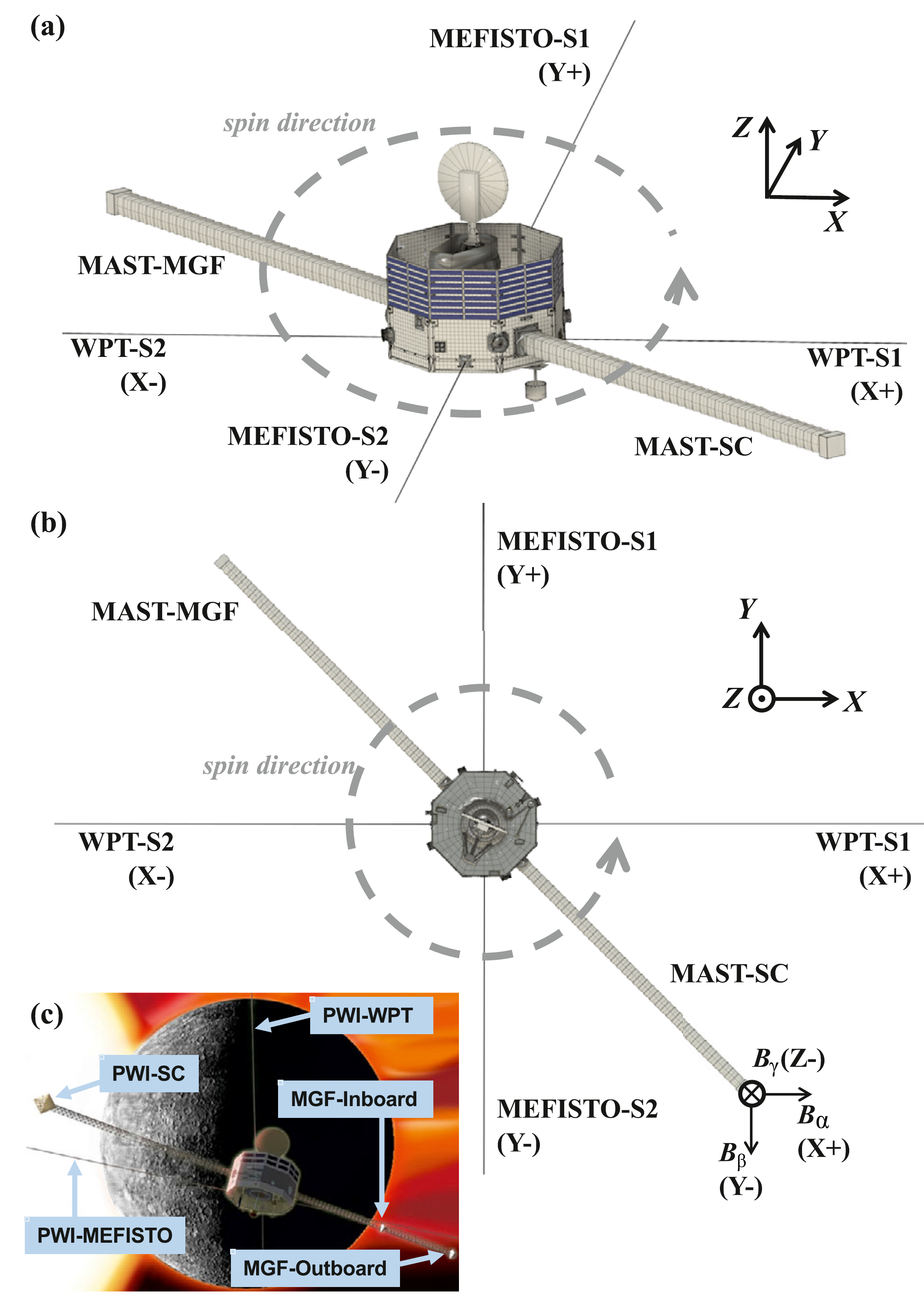
Measurement Principle
The Plasma Wave Investigation (PWI) aboard the BepiColombo Mio (Mercury Magnetospheric Orbiter, MMO) (Kasaba et al. 2020a) will enable the first observations of electric fields, plasma waves, and radio waves in and around the Hermean magnetosphere and exosphere. The PWI has two sets of receivers (EWO with AM2P, SORBET) connected to two electric field sensors (MEFISTO and WPT) and two magnetic field sensors (SCM: LF-SC and DB-SC). After full deployment of all sensors following insertion into Mercury orbit, the PWI will start its measurements of the electric field from DC to 10 MHz using two dipole antennas with a 32-m tip-to-tip length in the spin plane and the magnetic field from 0.3 Hz to 20 kHz using a three-axis sensor and from 2.5 kHz to 640 kHz using a single-axis sensor at the tip of a 4.5-m solid boom extended from the spacecraft’s side panel. Those receivers and sensors will provide (1) in-situ measurements of electron density and temperature that can be used to determine the structure and dynamics of the Hermean plasma environment; (2) in-situ measurements of the electron and ion scale waves that characterize the energetic processes governed by wave–particle interactions and non-MHD interactions; (3) information on radio waves, which can be used to remotely probe solar activity in the heliocentric sector facing Mercury, to study electromagnetic-energy transport to and from Mercury, and to obtain crustal information from reflected electromagnetic waves; and (4) information concerning dust impacts on the spacecraft body detected via potential disturbances.
Members
- Principal Investigator
- Yasumasa Kasaba (Tohoku University, Japan)
- Co-PI of PWI (EWO)
- Hirotsugu Kojima (Kyoto University, Japan)
- Co-PI of PWI (SORBET)
- Karine Issautier (LESIA Observatoire de Paris, France)
- Co-PI of PWI (MEFISTO)
- Jan-Erik Wahlund (IRFU, Sweden)
- Co-PI of PWI (LF-SC)
- Satoshi Yagitani (Kanazawa University, Japan)
- Lead Co-I of PWI (AM2P)
- Pierre Henri (LPC2E & Lagrange, France)
- Lead Co-I of PWI (MEFISTO)
- Tomas Karlsson (KTH, Sweden)
- Lead Co-I of PWI (MDP-PWI)
- Yoshiya Kasahara (Kanazawa University, Japan)
- Lead Co-I of PWI (WPT)
- Atsushi Kumamoto (Tohoku University, Japan)
- Lead Co-I of PWI (DB-SC)
- Fouad Sahraoui (LPP-Ecole Polytechnique, France)